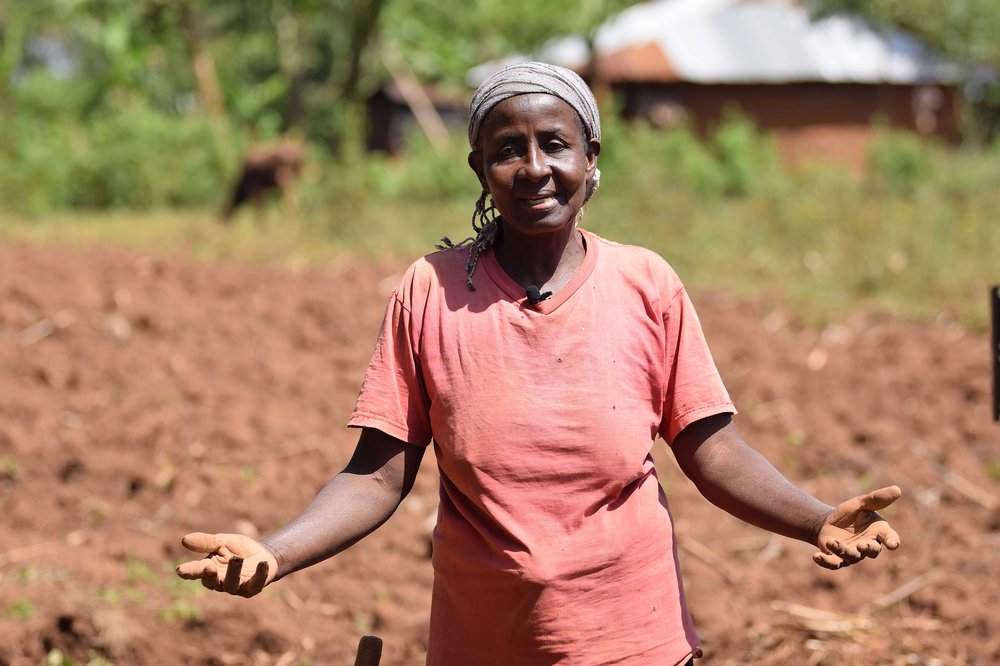Platforms struggle to support communities to secure their land rights and develop agriculture
When the new coronavirus (COVID-19) arrived Africa in January 2020, governments announced draconian measures to contain its spread, including restricting movement and association.
This has led to the complete shutdown of many African countries, putting people out of work and disrupting all sectors of life.While the measures seem to slow the rate of new infections and death, it has also frozen daily activities that support the livelihoods of millions of Africans.
The International Land Coalition (ILC) Africa members and platforms say the implications of COVID-19 go beyond economics and health. ILC members and partners lead platforms that are building trust with government agencies and contributing to building democracy from the bottom up.
They say the outbreak has disrupted land governance, which is vital in achieving inclusive economic growth, sustainable development and food security. In fact, it has halted the implementation of land laws and regulations and stopped processes that provide tenure security and protection for small holder farmers and indigenous peoples in their quest for land rights.
SMALL HOLDER AGRICULTURE IS SLOWING
COVID-19 is seriously disrupting African food systems. In Senegal and Togo, it has broken support from two ILC members; l'institut panafricain de recherche, de formation et d’action pour la Citoyenneté, la Consommation et le Développement en Afrique (CICODEV) and Autopromotion Rurale pour un Développement Humain Durable (ADHD) are respectively giving to local communities.
“Senegalese authorities imposed strict measures that prohibits us from travelling out of the Dakar area. This makes it difficult for us to continue the work we were doing with small holder farmers in Senegal,” says Mr Mballo Mamadou, Land Governance Project Officer, CICODEV.
ADHD is host to ILC’s National Engagement Strategy (NES), a multi-stakeholder process set in motion to promote people-centred land governance, by influencing the formulation and implementation of land policies in Togo. COVID-19 came at a time when ADHD was preparing a toolbox to help farmers and communities take advantage of the country’s new land law and the Voluntary guidelines on the responsible governance of tenure (VGGTs) to strengthen their land rights.
In South Africa, it upsets connection between small holder farmers and activists who work with communities to secure their lands and provide advisory services. With the government-imposed lockdown, “activists are not permitted to move around the communities in which they [advise]…,” writes Ms Laurel Oettle, Director of Association for Rural Advancement (AFRA), an ILC member in a position paper tabled to policy makers of South Africa. This, she adds, locks vulnerable farmers out of vital information that can be life changing.
DELAYS IN JUSTICE FOR INDIGENOUS PEOPLES
When the government of Kenya scaled down operations in March 2020 to curb the spread of COVID-19, it had just received two reports from the taskforce selected to implement the decision of the African Court on Human and People’s Rights (the African Court) on the Ogiek case. The African Court in 2017 ordered the government of Kenya to respect the rights of the Ogieks and return them to their ancestral lands.
“The report came two years after the taskforce was appointed and this lockdown has come to delay justice for our people,” says Mr John Samorai, Ogiek Peoples' Development Program (OPDP). The African Court has scheduled a hearing in June to discuss reparations on the Ogiek case. John fears this may not happen if things do not return to normal.
LAND AND ENVIRONMENTAL DEFENDERS LEFT IN THE COLD
Mr Etienne Bosulu is an indigenous environmental land defender and paralegal, who supports communities in the territories of Ingende and Bikoro in the Equateur province in the Democratic Republic of Congo(DRC).
He helps them learn vital knowledge to use local and national legal instruments to protect their territorial rights. When Congolese authorities announced lockdown in the country, his house had been burned and he was being harassed by local authorities for enlightening communities on how to protect their land. ILC Africa member, ERND who trained Mr Etienne to become a paralegal cannot support him in the current climate. “On April 2, he was arrested by the local police in the region and harassed,” says Mr Espoir Tshakoma, Environnement, Ressources Naturelles Et Developpement (ERND). This has made it difficult for ERND to transport lawyers to defend his case and to mobilise support to bring relief to Mr Etienne who lost his house and now lives in the bush, adds Mr Espoir.
WHAT ARE MEMBERS AND PLATFORMS DOING?
As governments look for ways to encourage their citizens to observe social distancing or self-confinement, ILC members are using information as a critical tool to promote safety.In Cameroon, ILC member Community Assistance in Development (COMAID) is packaging safety information for local communities in their language.
Mr Christian Jitar, its coordinator is repackaging government directives and World Health Organisation (WHO) measures. “We are working with local community leaders to translate government guidelines into local languages…,” says Mr Christian. Once translated, the directives broadcast on community radios. For Mr Christian, keeping communities healthy is vital for land rights, since people can no longer defend their rights if they are sick.
In South Africa, the ILC supported Land Network National Engagement Strategy for South Africa (LandNNES) recently joined the C19 People’s Coalition, an alliance of social movements, trade unions, community organisations, academics and progressive economists and NGOs. The ILC is committed to ensuring that the country’s response to the COVID-19 is effective, just, equitable, and meets the needs of vulnerable people.
FIND MORE
See tools that can help secure land rights in crisis situation
This blog was originally posted on the International Land Coalition website.


